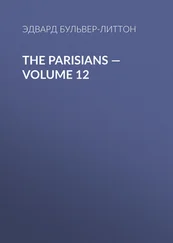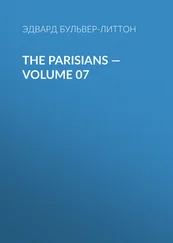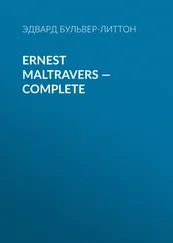Эдвард Бульвер-Литтон - Ernest Maltravers — Volume 06
Здесь есть возможность читать онлайн «Эдвард Бульвер-Литтон - Ernest Maltravers — Volume 06» — ознакомительный отрывок электронной книги совершенно бесплатно, а после прочтения отрывка купить полную версию. В некоторых случаях можно слушать аудио, скачать через торрент в формате fb2 и присутствует краткое содержание. Жанр: foreign_prose, literature_19, Европейская старинная литература, foreign_antique, на английском языке. Описание произведения, (предисловие) а так же отзывы посетителей доступны на портале библиотеки ЛибКат.
- Название:Ernest Maltravers — Volume 06
- Автор:
- Жанр:
- Год:неизвестен
- ISBN:нет данных
- Рейтинг книги:3 / 5. Голосов: 1
-
Избранное:Добавить в избранное
- Отзывы:
-
Ваша оценка:
- 60
- 1
- 2
- 3
- 4
- 5
Ernest Maltravers — Volume 06: краткое содержание, описание и аннотация
Предлагаем к чтению аннотацию, описание, краткое содержание или предисловие (зависит от того, что написал сам автор книги «Ernest Maltravers — Volume 06»). Если вы не нашли необходимую информацию о книге — напишите в комментариях, мы постараемся отыскать её.
Ernest Maltravers — Volume 06 — читать онлайн ознакомительный отрывок
Ниже представлен текст книги, разбитый по страницам. Система сохранения места последней прочитанной страницы, позволяет с удобством читать онлайн бесплатно книгу «Ernest Maltravers — Volume 06», без необходимости каждый раз заново искать на чём Вы остановились. Поставьте закладку, и сможете в любой момент перейти на страницу, на которой закончили чтение.
Интервал:
Закладка:
Edward Bulwer-Lytton
Ernest Maltravers — Volume 06
BOOK VI
Perchance you say that gold's the arch-exceller,
And to be rich is sweet?
* * * 'Tis not to be endured,
To yield our trodden path and turn aside,
Giving our place to knaves.
CHAPTER I
"L'adresse et l'artifice out passe dans mon coeur;
Qu'ou a sous cet habit et d'esprit et de ruse." 1 1 Subtility and craft have taken possession of my heart; but under this habit one exhibits both shrewdness and wit.
—REGNARD.
IT was a fine morning in July, when a gentleman who had arrived in town the night before—after an absence from England of several years—walked slowly and musingly up the superb thoroughfare which connects the Regent's park with St. James's.
He was a man, who, with great powers of mind, had wasted his youth in a wandering vagabond kind of life, but who had worn away the love of pleasure, and began to awaken to a sense of ambition.
"It is astonishing how this city is improved," said he to himself. "Everything gets on in this world with a little energy and bustle—and everybody as well as everything. My old cronies, fellows not half so clever as I am, are all doing well. There's Tom Stevens, my very fag at Eton—snivelling little dog he was too!—just made under-secretary of state. Pearson, whose longs and shorts I always wrote, is now head-master to the human longs and shorts of a public school—editing Greek plays, and booked for a bishopric. Collier, I see by the papers, is leading his circuit—and Ernest Maltravers (but /he/ had some talent) has made a name in the world. Here am I, worth them all put together, who have done nothing but spend half my little fortune in spite of all my economy. Egad, this must have an end. I must look to the main chance; and yet, just when I want his help the most, my worthy uncle thinks fit to marry again. Humph—I'm too good for this world."
While thus musing, the soliloquist came in direct personal contact with a tall gentleman, who carried his head very high in the air, and did not appear to see that he had nearly thrown our abstracted philosopher off his legs.
"Zounds, sir, what do you mean?" cried the latter.
"I beg your par—" began the other, meekly, when his arm was seized, and the injured man exclaimed, "Bless me, sir, is it indeed /you/ whom I see?"
"Ha!—Lumley?"
"The same; and how fares it, any dear uncle? I did not know you were in London. I only arrived last night. How well you are looking!"
"Why, yes, Heaven be praised, I am pretty well."
"And happy in your new ties? You must present me to Mrs. Templeton."
"Ehem," said Mr. Templeton, clearing his throat, and with a slight but embarrassed smile, "I never thought I should marry again."
"/L'homme propose et Dieu dispose/," observed Lumley Ferrers; for it was he.
"Gently, my dear nephew," replied Mr. Templeton, gravely; "those phrases are somewhat sacrilegious; I am an old-fashioned person, you know."
"Ten thousand apologies."
"/One/ apology will suffice; these hyperboles of phrase are almost sinful."
"Confounded old prig!" thought Ferrers; but he bowed sanctimoniously.
"My dear uncle, I have been a wild fellow in my day; but with years comes reflection; and under your guidance, if I may hope for it, I trust to grow a wiser and a better man."
"It is well, Lumley," returned the uncle, "and I am very glad to see you returned to your own country. Will you dine with me to-morrow? I am living near Fulham. You had better bring your carpet-bag, and stay with me some days; you will be heartily welcome, especially if you can shift without a foreign servant. I have a great compassion for papists, but—"
"Oh, my dear uncle, do not fear; I am not rich enough to have a foreign servant, and have not travelled over three-quarters of the globe without learning that it is possible to dispense with a valet."
"As to being rich enough," observed Mr. Templeton, with a calculating air, "seven hundred and ninety-five pounds ten shillings a year will allow a man to keep two servants, if he pleases; but I am glad to find you economical at all events. We meet to-morrow, then, at six o'clock."
"/Au revoir/—I mean, God bless you.
"Tiresome old gentleman that," muttered Ferrers, "and not so cordial as formerly; perhaps his wife is /enceinte/, and he is going to do me the injustice of having another heir. I must look to this; for without riches, I had better go back and live /au cinquieme/ at Paris."
With this conclusion, Lumley quickened his pace, and soon arrived at Seamore Place. In a few moments more he was in the library well stored with books, and decorated with marble busts and images from the studios of Canova and Thorwaldsen.
"My master, sir, will be down immediately," said the servant who admitted him; and Ferrers threw himself on a sofa, and contemplated the apartment with an air half envious and half cynical.
Presently the door opened, and "My dear Ferrers!" "Well, /mon cher/, how are you?" were the salutations hastily exchanged.
After the first sentences of inquiry, gratulation, and welcome, had cleared the way for more general conversation,—"Well, Maltravers," said Ferrers, "so here we are together again, and after a lapse of so many years! both older, certainly; and you, I suppose, wiser. At all events, people think you so; and that's all that's important in the question. Why, man, you are looking as young as ever, only a little paler and thinner; but look at me—I am not very /much/ past thirty, and I am almost an old man; bald at the temples, crows' feet, too, eh! Idleness ages one damnably."
"Pooh, Lumley, I never saw you look better. And are you really come to settle in England?"
"Yes, if I can afford it. But at my age, and after having seen so much, the life of an idle, obscure /garcon/ does not content me. I feel that the world's opinion, which I used to despise, is growing necessary to me. I want to be something. What can I be? Don't look alarmed, I won't rival you. I dare say literary reputation is a fine thing, but I desire some distinction more substantial and worldly. You know your own country; give me a map of the roads to Power."
"To Power! Oh, nothing but law, politics, and riches."
"For law I am too old; politics, perhaps, might suit me; but riches, my dear Ernest—ah, how I long for a good account with my banker!"
"Well, patience and hope. Are you are not a rich uncle's heir?"
"I don't know," said Ferrers, very dolorously; "the old gentleman has married again, and may have a family."
"Married!—to whom?"
"A widow, I hear; I know nothing more, except that she has a child already. So you see she has got into a cursed way of having children. And perhaps, by the time I'm forty, I shall see a whole covey of cherubs flying away with the great Templeton property!"
"Ha, ha; your despair sharpens your wit, Lumley; but why not take a leaf out of your uncle's book, and marry yourself?"
"So I will when I can find an heiress. If that is what you meant to say—it is a more sensible suggestion than any I could have supposed to come from a man who writes books, especially poetry: and your advice is not to be despised. For rich I will be; and as the fathers (I don't mean of the Church, but in Horace) told the rising generation, the first thing is to resolve to be rich, it is only the second thing to consider how."
"Meanwhile, Ferrers, you will be my guest."
"I'll dine with you to-day; but to-morrow I am off to Fulham, to be introduced to my aunt. Can't you fancy her?—grey /gros-de-Naples/ gown: gold chain with an eyeglass; rather fat; two pugs, and a parrot! 'Start not, this is fancy's sketch!' I have not yet seen the respectable relative with my physical optics. What shall we have for dinner? Let me choose, you were always a bad caterer." As Ferrers thus rattled on, Maltravers felt himself growing younger: old times and old adventures crowded fast upon him; and the two friends spent a most agreeable day together. It was only the next morning that Maltravers, in thinking over the various conversations that had passed between them, was forced reluctantly to acknowledge that the inert selfishness of Lumley Ferrers seemed now to have hardened into a resolute and systematic want of principle, which might, perhaps, make him a dangerous and designing man, if urged by circumstances into action.
Читать дальшеИнтервал:
Закладка:
Похожие книги на «Ernest Maltravers — Volume 06»
Представляем Вашему вниманию похожие книги на «Ernest Maltravers — Volume 06» списком для выбора. Мы отобрали схожую по названию и смыслу литературу в надежде предоставить читателям больше вариантов отыскать новые, интересные, ещё непрочитанные произведения.
Обсуждение, отзывы о книге «Ernest Maltravers — Volume 06» и просто собственные мнения читателей. Оставьте ваши комментарии, напишите, что Вы думаете о произведении, его смысле или главных героях. Укажите что конкретно понравилось, а что нет, и почему Вы так считаете.












